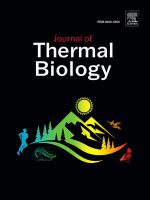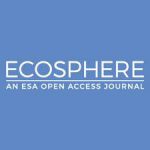Profile
Sea turtles are an excellent model group for assessing climate change impacts because much of their physiology is linked to temperature. For example, the sex of a turtle is determined by the incubation temperature of the embryo. Additionally, the successful development of an embryo occurs within a narrow thermal range. This presents risks if temperatures were to rise beyond the viable range for embryonic development.
I have been studying sea turtles in the Chagos Archipelago since 2016, working closely with Professor Graeme Hays and Dr Nicole Esteban. Our previous work has shown that sand temperatures across the archipelago are relatively cool. This result contrasts with the predominantly warm temperatures reported at most rookeries around the globe. Our findings suggests that sites characterized by heavy shade associated with intact natural vegetation—such as those found across the Chagos Archipelago—are likely to provide conditions suitable for male hatchling production.
More recently, we investigated if sea turtles can adapt to warming temperatures by shifting their nesting season to a cooler part of the year. We showed that even with the most extreme phenological shift reported to date, temperatures will increase at nesting sites. We calculated that—at best—hawksbill turtles nesting on Diego Garcia can mitigate 20% of warming temperatures by nesting earlier. The results of our research will help guide short-term and long-term conservation strategies for these iconic marine species nesting in the Chagos Archipelago.
The sea, once it casts its spell, holds one in its net of wonder forever.
Biography
My Project
Other interests
My Publications

Status, Trends and Conservation of Global Sea Turtle Populations
Hays, G.C., Laloe, J.-O., Seminoff, J.A. (2025). Status, trends and conservation of global sea turtle populations. Nature Reviews Biodiversity

Assessing the Impacts of Satellite Tagging on Growth of Immature Hawksbill Turtles
Stokes, H.J., Stokes, K.L., Mortimer, J.A., Laloe, J-O., Esteban, N., Hays, G.C. (2024). Assessing the impacts of satellite tagging on growth of immature hawksbill turtles. Methods in Ecology and Evolution.

Empirical Evidence for the Extent of Spatial and Temporal Thermal Variation on Sea Turtle Nesting Beaches
Stokes, H.J., Laloe, J-O., Esteban, N., Hays, G.C. (2024). Empirical evidence for the extent of spatial and temporal thermal variation on sea turtle nesting beaches. Journal of Thermal Biology

Remote Submerged Banks and Mesophotic Ecosystems Can Provide Key Habitat for Endangered Marine Megafauna
Hays, G.C., Laloë, J-O., Mortimer, J.A., Rattray, A., Tromp, J.J., Esteban, N. (2024). Remote submerged banks and mesophotic ecosystems can provide key habitat for endangered marine megafauna. Science Advances.

Synergistic Use of UAV Surveys, Satellite Tracking Data and Mark-Recapture to Estimate Abundance of Elusive Species
Stokes, H.J., Mortimer, J.A., Laloë, J.-O., Hays, G.C., Esteban, N. (2023). Synergistic use of UAV surveys, satellite tracking data and mark-recapture to estimate abundance of elusive species. Ecosphere.



